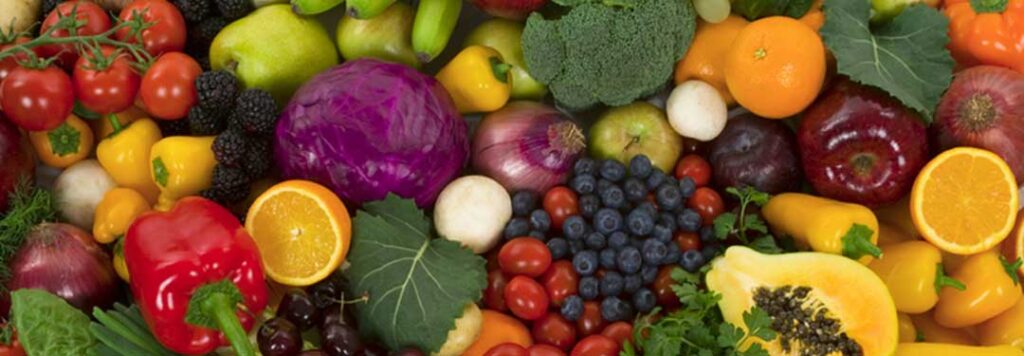One of the most prominent figures in integrative medicine today is Dr. Mark Hyman. He’s a New York Times bestselling author, a columnist for The Huffington Post, and founder and medical director of The UltraWellness Center. After writing several books on wellness, he tossed his hat into the diet ring last year with The Pegan Diet: 21 Practical Principles for Reclaiming Your Health in a Nutritionally Confusing World.
Of course, it should come as no surprise that a physician dedicated to holistic healing would have a few things to say about nutrition. As he says, “Food is medicine.” His principles for healthy eating allow for a great deal of flexibility in meal planning. His use of the term “pegan” suggests that he is as comfortable with a paleo diet as he is with a vegan one… or some combination of the two!
Here are his 21 principles:
#1. Use food as your “farmacy.” Eat with the intention of satisfying your daily requirements of essential vitamins, minerals, and amino acids. Drink clean, filtered water.
#2: Eat the rainbow – i.e., lots of colorful fruits and vegetables. In addition to providing the aforementioned “essentials,” they’re packed with phytonutrients (e.g., polyphenols, resveratrol, flavonoids, isoflavonoids, terpenoids, carotenoids) that boost immunity, reduce inflammation, fight cancer, and curtail the effects of aging.
#3: Fill 75% of your plate with nonstarchy vegetables. That translates into 6-8 cups of said veggies and no more than a half cup of starchy ones (e.g., potatoes, winter squash) daily.
#4: Eat the right beans, whole grains, nuts, and seeds. Soak and boil (or pressure cook) beans to remove lectins. Use non-GMO, organic tofu, tempeh, and miso. Limit whole grains to 1/2 to 1 cup daily; avoid processed grains (bread, pasta). Get omega-3 oils with walnuts, flaxseeds, hemp seeds, and chia seeds (but go easy on them!)
#5: If you consume red meat, opt for grass fed beef and make portions palm-sized. Avoid high temperature cooking – i.e., grilling, charring, frying, smoking.
#6: Choose poultry labeled pasture raised or organic and wild caught fish.
#7: Have a little bit of fat with every meal, but don’t eat it in combination with sugar or starch.
#8: Avoid dairy (mostly). Opt for sheep or goat milk. Ghee is OK.
#9: Buy from farmers who care about the soil. It’s better for you and better for the planet.
#10: Treat sugar like a recreational (and addictive) drug. Just say NO… even to artificial sweetener. Your body and brain will thank you for it.
#11: Don’t rely on coffee to wake you up or alcohol to chill you out. Make filtered water your beverage of choice. Alcohol depletes nutrients and diminishes brain, gut, and liver function. If you imbibe socially or for the sheer pleasure of it, limit yourself to 1 ounce of alcohol 3 times per week – that’s 1 ounce of hard liquor, 5 ounces of wine, or 10 ounces of beer at a time.
#12: Work with your particular physiology to eat the foods that upregulate beneficial processes and downregulate reactive ones. If something makes you feel lousy, stop eating it!
#13: Cleanse, detox, and reset wisely. Stick to a sleep schedule to restore body and mind every night.
#14: Be attentive to nutrient deficiencies if pursuing a vegan diet. Dr. Hyman recommends taking a protein shake with a full amino acid profile plus 2.5g leucine and supplementing with Vitamin D, omega 3 fats, zinc, iodine, vitamin B12, and iron.
#15: Eat for gut health. Remove processed foods, gluten, dairy sugars, refined oils, and food sensitivities. Stay away from antibiotics, steroids, anti-inflammatories, and acid blockers unless absolutely necessary. Bolster “good bugs” with fermented foods – e.g., sauerkraut, kimchi, kefir, miso, tempeh. Eat pre- and probiotic rich foods.
#16: Focus on your healthspan, not just your lifespan. Don’t smoke. Get at least 3.5 hours of aerobic exercise each week. Do weight training. Maintain a healthy weight. Give yourself 12 hours between dinner and breakfast.
#17: Eat to feed your mind. Brain-boosting foods include omega-3 rich seafood (salmon, oysters), berries, fermented foods, green tea, nuts, seeds.
#18 Make healthy eating affordable. Buy ugly produce (e.g., Misfits, Imperfect Food). Buy in bulk. Plan meals before going to the grocery store and buy only what’s on the list.
#19: Feed your kids what you eat to inculcate healthy habits.
#20: Make healthy habits stick by: (i) getting clear on your motivation, (ii) securing supportive social influences, (iii) starting small and building slowly, and (iv) learning about the science of change.
#21: Start today!
